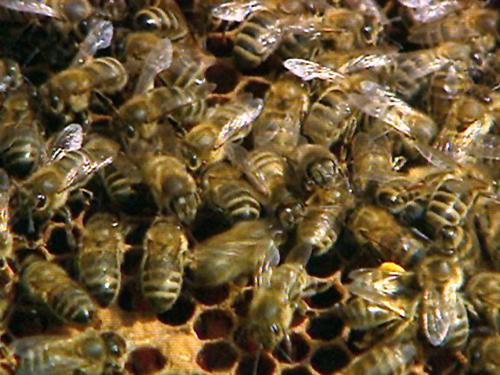
Data: 08.02.2009
Kategoria:
Aktualności
Jeśli znikną pszczoły…
Już w kwietniu może się okazać, że w Polsce, liczba rodzin pszczelich spadła nawet o połowę. A wtedy? Jeśli wziąć pod uwagę to, że światowa produkcja żywności aż w 75 % uzależniona jest od kondycji sektora pszczelarskiego, trudno nie przyznać racji Albertowi Einsteinowi, który mawiał : „Jeśli znikną pszczoły, wkrótce to samo, stanie się z ludźmi.”
A wszystko zaczęło się bardzo niewinnie, pod koniec tamtego roku. Z różnych zakątków kraju, a co najdziwniejsze, nawet z ekologicznie czystych terenów, zaczęły napływać informacje o masowym ginięciu pszczół.
Owady wylatywały z ula, traciły orientację, i nigdy już do niego nie wracały. To dziwne, mówią pszczelarze, bo pszczoła jest jak wierny pies, drogę do domu znajdzie zawsze.
Paweł Chorbiński – Uniwersytet Przyrodniczy we Wrocławiu : ostatnie informacje, które krążą po Polsce w szerokim zakresie mogą wskazywać, że mogą w tym roku być bardzo duże straty w pszczołach nawet na 60%.
Podobna sytuacja miała miejsce we Francji i Niemczech. Tam tez masowo ginęły pszczoły. Zaczęto dochodzić przyczyn. Okazało się, że zabójca pszczół jest imidakloprid.
Składnik miedzy innymi zaprawy nasiennej do ochrony buraków cukrowych. Na naszym rynku są produkty zawierające w swoim składzie tą zabójczą substancje. We Francji i w Niemczech zadziałano szybko. Preparaty wycofano, a pszczelarze dostali wysokie odszkodowania. U nas niestety, nie jest już tak łatwo.
Robert Kolasiński – przetwórnia miodu w Walcach: te w nasionach buraka czy rzepaku, które są zaprawiane tym pestycydem i jest podejrzenie, że przechodzi do cukru, przy czym normy dla człowieka są znacznie wyższe i to nie wykazuje na razie. Podejrzewam, że następne badania udowodnią.
Ale na razie, trudno cokolwiek udowodnić. Apele Polskiego Związku Pszczelarskiego pozostają bez echa. Tymczasem pszczoły słabną nadal. Szczególnie te, karmione cukrem.
dr Reiner Schechter – prezes Sud Zucker Polska: dla mnie jest to sprawa niezrozumiała. Jeśli miałby być cukier, który byłby przyczyną choroby. My kilka lat co najmniej 10 w technologii i produkcji cukru i uprawy buraka cukrowego nic nie zmienialiśmy.
Pszczelarzom trudno znaleźć w Polsce sprzymierzeńców. Tymczasem imidakloprid truje nadal. W glebie rozkłada się ponad 3 lata.
Małgorzata Motecha-Pastuszko, Mariusz Drożdż
04.02.2009 r. rolna.tvp.pl

